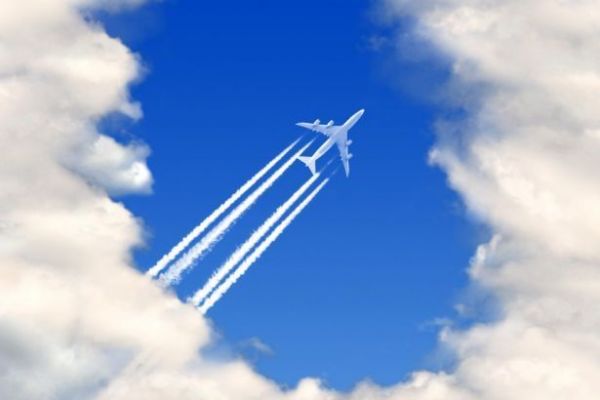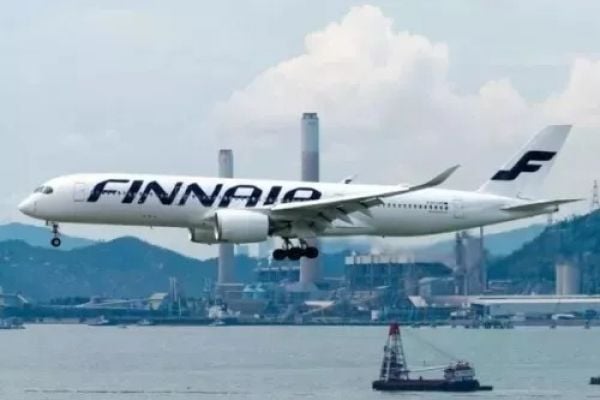The United States closed its airspace to Russian planes as the Russian military attempted to encircle and subdue Ukrainian cities with intensifying bombardments on Wednesday 2 March, almost a week into an invasion that has sparked massive international sanctions.
Already shunned by the West over its invasion of Ukraine, Russia has shown no sign of stopping an assault that has included strikes on Kyiv and rocket attacks in the second city of Kharkiv. Dozens have been killed.
Russia has failed to capture a single city since its full-scale invasion began nearly a week ago, and Western analysts say Moscow has fallen back on tactics which call for devastating shelling of built-up areas before entering them.
Hundreds of thousands of Ukrainians have fled the fighting as a miles-long Russian military convoy north of Kyiv advances toward the city. West of Kyiv, in the city of Zhytomyr, four people, including a child, were killed on Tuesday by a Russian cruise missile, a Ukrainian official said.
Ukrainian President Volodymyr Zelenskiy called on Russia to stop bombarding civilians and resume talks.
"It's necessary to at least stop bombing people, just stop the bombing and then sit down at the negotiating table," he told Reuters and CNN in a joint interview in a heavily guarded government compound in Kyiv.
Zelenskiy later thanked Western leaders for their support. "Today, more than ever, it is important for us to feel that we are not alone," he wrote on Twitter.
Russian President Vladimir Putin has drawn global condemnation and sanctions that have sent the rouble to historic lows and forced Russians to queue outside banks for their savings.
Putin ordered the "special military operation" last Thursday in a bid to disarm Ukraine, capture the "neo-Nazis" he says are running the country and crush its hopes of closer ties to the West.
In his first State of the Union address, US President Joe Biden said the United States would ban Russian planes from its airspace, joining the European Union and Canada, and vowed Putin would pay a heavy price for his decision to invade Ukraine.
"He has no idea what's coming," he said in the chamber of the House of Representatives.
"Let each of us if you're able to stand, stand and send an unmistakable signal to Ukraine and to the world."
The lawmakers stood, applauded and roared, many of them waving Ukrainian flags.
"Freeze And Seize"
Ukraine, which is not a member of NATO, has called on the US-led military alliance to implement a no-fly zone - a request rejected by Washington, which fears stoking a direct conflict between the world's two biggest nuclear powers.
Washington and its allies have instead sent weapons to Kyiv, and Treasury Secretary Janet Yellen said the United States had agreed with partners to convene a task force "to freeze and seize the assets of key Russian elites".
The move "will inflict financial pain on the powerful individuals surrounding Putin and make clear that no one is beyond our collective reach," Yellen said in a statement following a Tuesday call with Group of Seven officials.
The West is shutting off Russia's economy from the global financial system, pushing international companies to halt sales, cut ties, and dump tens of billions of dollars' worth of investments.
Exxon Mobil joined other major Western energy companies including British BP PLC BP.L and Shell RDSa.L in announcing it would quit oil-rich Russia over the invasion.
Apple Inc AAPL.O stopped sales of iPhones and other products in Russia, and was making changes to its Maps app to protect civilians in Ukraine. Alphabet Inc's GOOGL.O Google dropped Russian state publishers from its news, and Ford Motor F.N. suspended operations in the country.
Russia on Tuesday 1 March placed temporary restrictions on foreigners seeking to exit Russia assets, meaning that billions of dollars worth of securities held by foreigners are at risk of being trapped.
Civilians Killed
The heaviest Russian bombardment so far appeared to be around Ukraine's second-largest city Kharkiv, near the border with Russia. Dozens of residents including children were killed when a Russian strategic bomber fired 16 guided missiles toward a residential area on Monday 28 February, Ukraine's defence ministry said.
In Ukraine's largely Russian-speaking city of Donetsk, in territory controlled by Russian-backed separatists, authorities said three civilians had been killed by Ukrainian shelling.
Reuters was not able to confirm any of the incidents of reports of casualties. The United Nations says at least 136 civilians have been killed in the invasion, but that the real number of people is likely much higher.
Russia has not published any precise casualty figures for its own military, but says its losses have been far lower than those of Ukrainian forces.
Ukraine's air force continued to defy expectations that Russia would achieve swift dominance of the air.
"The airspace is actively contested every day," a senior US defense official said, speaking on condition of anonymity.
Russian Airline Isolation Grows As Jetmakers Halt Parts Supply
Planemakers Boeing BA.N and Airbus AIR.PA have halted supply of parts and support to Russian airlines as the effects of sanctions over Russia's invasion of Ukraine ripple across the global aviation industry.
The United States said late on Tuesday 1 March that it would follow the European Union and Canada in banning Russian flights from its airspace in a move that is likely to trigger Russian retaliation.
Boeing said that it had "suspended major operations" in Russia, where it also has research and engineering centres.
Airbus, meanwhile, said it is halting supply of parts and services to Russian airlines but is analysing whether its Moscow engineering centre could continue providing services to local customers.
The latest developments leave Russian aviation increasingly isolated just as major powers discuss reviving a deal that lifted similar sanctions against Iran until Washington withdrew in 2018.
Sanctions against Russia will have greater consequences than those on Iran or North Korea, given the size of its market and dependence on Western suppliers, analysts said.
"With Western lessors also looking to repossess jets that are operated by Russian carriers, the Russian aviation sector is now on a footing that is similar to North Korea and Iran - and similar to where it was under Soviet rule," wrote Vertical Research Partners analyst Rob Stallard.
Russia accounted for about 6% of airline capacity in 2021, up from 4% in 2019, thanks to its strong relative performance during the pandemic, according to consultants IBA.
The country's airlines have a total of 332 Boeing and 304 Airbus jets, amounting to about two thirds of Russia's fleet, Cirium Fleets data shows.
How quickly those are starved of parts will depend on who owns them and how many critical items airlines hold.
Jetliners are subject to constant oversight ranging from daily checks to heavy maintenance every six years.
They contain hundreds of thousands of parts. While more routine problems might not require immediate grounding of an aircraft, provided the issue is addressed in a certain number of days, some parts remain absolutely essential for a plane to be allowed to fly.
Planes owned by Russian airlines can be flown while they have sufficient parts in stock, but the carriers may have trouble getting their jets serviced in the shrinking areas of the world still accepting Russian planes, given that repair shops must use approved parts.
Even where parts can be found outside the country, airlines face potential payment difficulties after some Russian banks were barred from the SWIFT international payments system.
Limited Parts
Many airlines re-use parts from their own planes, but there have been complaints in the past that struggling airlines cannibalised leased planes, which are off-limits.
"Because parts are limited, we will expect to see aircraft that are on the ground in Russia being robbed in order to keep the remainder of the fleet operational," said Peter Walter, director of technical and asset management at IBA.
A total of 515 planes in Russia are leased from foreign companies, according to Cirium.
Lessors have until March 28 to wind up contracts under EU sanctions, but industry executives have expressed concern over whether Russian airlines and courts would comply.
Russia has domestic repair facilities, but carriers have also cut deals with foreign businesses. Aeroflot last year signed a long-term agreement with Hong Kong Aircraft Engineering Company (HAECO), which did not respond to a request for comment.
Lufthansa Technik LHAG.DE said it had stopped serving Russian customers in a move affecting hundreds of planes.
Russian difficulties in sourcing spare parts could also affect international airlines that still fly to Russia and sometimes require replacement parts at the destination.
Gulf carriers continue to operate some flights to Russia, according to airline statements and tracking data.
Flydubai, which operates a fleet of 737s to eight Russian cities at present, said that it was aware of Boeing's announcement and is monitoring the situation.
Russian airlines will also be barred from taking new aircraft from Western manufacturers. They have 62 planes on order with Airbus or Boeing, IBA data shows, including 25 Boeing 737 MAX jets.
Russia is the only major country where the 737 MAX has not yet been cleared after worldwide bans following fatal crashes.
Japanese Airlines JAL, ANA Consider Diverting Routes Around Russia
Japan Airlines Co Ltd (JAL) 9201.T and All Nippon Airways, a subsidiary of ANA Holdings Inc 9202.T, are considering routes that avoid Russia, following security concerns stemming from its invasion of Ukraine, the airlines said on Wednesday 2 March.
JAL will suspend weekly round-trips between Tokyo and Moscow again this week, it added. A spokesperson said the airline would suspend code-sharing on regular flights out of Europe, as its European partners had decided not to fly over Russia.
ANA has put on hold its plans for a flight service to Moscow due to the COVID-19 pandemic.
Its president, Yuji Hirako, said that while a decision would be difficult now on whether to launch a service, the airline would face a challenge if it was deemed unprofitable.
Airlines have suspended flights in Russian airspace, while European nations, Canada and the United States have banned Russian aircraft from their airspace, in a bid to pressure President Vladimir Putin to end the Ukraine invasion.
United Airlines Suspends Flying Over Russian Airspace
United Airlines UAL.O confirmed on Tuesday 1 March that it has temporarily suspended flying over Russian airspace, joining other major US carriers.
United had been continuing to fly over Russian airspace to operate some flights to and from India in recent days. Delta Air Lines DAL.N, American Airlines AAL.O and United Parcel Service UPS.N all confirmed this week they had halted flights over Russia as the White House considers following Canada and the European Union in banning overflights of US airspace by Russian carriers.
EU Nations Considering Banning Russian Ships From Ports - Officials
European Union countries are considering a ban on Russian ships entering the bloc's ports, aiming to tighten sea restrictions after a halt on air traffic, European officials say, a step that would further hamper Russia's commercial shipments.
Britain already decided on Monday 28 February to deny entry to British ports to all ships that are Russian owned, operated, controlled, chartered, registered or flagged. Canada followed on Tuesday 1 March, saying it would shut its ports to Russian-owned ships later this week, a day after it banned Russian crude oil imports.
The Marshall Islands-flagged NS Champion, which is operated by Russian shipping company Sovcomflot, turned away from the UK on Monday after the UK ban was declared and reported it was heading to Denmark with an oil cargo onboard and an expected arrival on March 2, ship tracking data on Eikon showed.
Two other vessels carrying liquefied natural gas (LNG) cargoes, the Marshall Islands La Perouse, operated by Sovcomflot, and the Cyprus-flagged Christophe De Margerie, operated by Russia's Yamal, were both heading to France in coming days, Eikon ship tracking data showed.
With tighter global energy supplies, cutting off such shipments poses a challenge for Europe, which joined the United States and other allies in imposing an array of sanctions on Russia for its invasion of Ukraine, which Moscow calls a "special operation".
Denmark's foreign ministry said EU foreign ministers discussed closing European ports to Russian ships on Sunday.
"Denmark is actively working for the EU to make a common decision to close its ports to Russian vessels," the foreign ministry said in an emailed comment to Reuters.
"We have already decided to close the Danish airspace to Russian aircraft. At the same time, we are open to looking at new initiatives in collaboration with our European partners."
A French government official told Reuters the EU was working on more sanctions and the closure of ports to Russian ships was a possibility, but added that any additional steps should affect Russia "proportionally much more than our own economies".
A Greek government official said Athens "will implement any decision the European Commission takes on this issue".
In Due Course
A European Commission spokesperson said there was no such ban in force at the moment. "But we continue working on further sanctions, which will be announced in due course," the spokesperson added.
The European Parliament on Tuesday 1 March voted on a non-binding resolution calling for EU ports to be closed to Russian ships and ships coming to or from Russia, except for "necessary justified humanitarian reasons", which could add political pressure for the bloc to act.
On Monday 28 February, the Spanish transport ministry declared the country's airspace closed to Russian-operated aircraft and said it had proposed similar measures in the maritime sector.
Madrid said it was considering denying Russian ships access to Spanish ports, prohibiting supplying them there with fuel or other supplies, or even blocking Russian or Russian company-owned ships from accessing Spanish waters.
Jens Meier, chief of Hamburg's Port Authority, told an online news conference on Monday 28 February that while there were no clear rules about dealing with Russian ships at the time, he expected an announcement shortly "as to what is no longer allowed".
Elegny, the Engie-owned ENGIE.PA gas shipment and storage firm which operates the terminal at Montoir where Yamal's Christophe De Margerie was headed, did not immediately respond when asked if it had received any instructions from government or local authorities on handling the cargo.
Sovcomflot was among the Russian entities the US Treasury restricted last week from raising capital in US markets, which shipping sources say will complicate transactions for the Moscow-listed company.
Sovcomflot declined to comment on Tuesday 1 March.
EU In Talks With US On possibly Expanding Airspace Ban For Russian Carriers
European Union officials are speaking with their United States counterparts about extending the current airspace bans imposed on Russia following its invasion of Ukraine, a senior EU official said on Tuesday 1 March.
Airlines are bracing for potentially lengthy blockages of key east-west flight corridors after the European Union and Moscow issued tit-for-tat airspace bans. Washington has not ruled out similar action in response to what Russian President Vladimir Putin has called "a special military operation."
"Yes, there are discussions with the U.S. on what measures they will adopt," the official told reporters, adding that it was too early to assess the impact of the bloc's airspace ban.
Global supply chains, already hit hard by the pandemic, face increasing disruption and cost pressure by the closure of the skies which will affect over a fifth of air freight.
Hardest hit are likely to be Russian carriers, which make up approximately 70% of the flights between Russia and the EU, the official said.
"On a daily basis, there are approximately 300 flights per day from Russian carriers into the EU...or overflying the EU," he said, far more than the 50 flights per day by EU airlines to Russia and the 90 flights overflying its territory to Asia by European companies.
The EU official said the measures also target Russian oligarchs who may be tempted to circumvent the air space ban.
"The measures apply to Russian nationals even if they have double nationalities, they will be covered by those. And it doesn't matter whether they are EU residents, if they are Russian nationals, they will be covered," he said.
"Russian nationals or a Russian company cannot charter, own or control a plane that will be flying into the EU, out of the EU or overflying the EU. So that's the rule."
News by Reuters, edited by Hospitality Ireland. Click subscribe to sign up for the Hospitality Ireland print edition.









